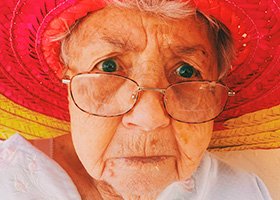
All iLive content is medically reviewed or fact checked to ensure as much factual accuracy as possible.
We have strict sourcing guidelines and only link to reputable media sites, academic research institutions and, whenever possible, medically peer reviewed studies. Note that the numbers in parentheses ([1], [2], etc.) are clickable links to these studies.
If you feel that any of our content is inaccurate, out-of-date, or otherwise questionable, please select it and press Ctrl + Enter.
Longevity can be passed down the maternal line
Last reviewed: 02.07.2025
 ">
">American experts representing the University of California (San Diego) claim that women whose mothers were able to live to ninety years or more also have every chance of living a long time, and without developing serious pathologies and complications in the form of disabilities. The study was conducted by scientists under the supervision of Professor Aladdin Shadyab.
The quality of health and life of older people is one of the main aspects of great interest to public health workers in the United States. According to statistics from this country, the number of people who have reached old age is rapidly increasing every year. It is for this reason that over the past five decades, scientists have conducted a variety of studies aimed at studying the phenomenon of age-related changes as such. However, in most cases, specialists have managed to detect only superficial moments that can affect the quality and duration of life.
An extreme scientific project has helped identify several unique patterns that influence a person's ability to live long.
Scientists monitored the health and quality of life of twenty-two thousand postmenopausal women. As a result, experts established an interesting fact: if the mother's life expectancy was at least ninety years or more, then her daughter has a 25% chance of living no less long. At the same time, it was not so much the number of years of the woman that was decisive, but her general well-being and health in her declining years. If older women led an active life without stressful overloads, did their favorite things, regularly walked in the fresh air, spent time calmly, then their life expectancy was significantly higher.
Experts note that the quality and length of life of men did not in any way affect the longevity of their daughters, even if the father lived longer than ninety years.
However, if both parents – mother and father – lived happily ever after, then their daughters’ chances of living just as long increased by almost 40%.
Professor Shadyab and his team of scientists suggest that the basic moment of such a pattern may be the ratio of genetic predisposition, quality of the environment and ecology, as well as behavioral characteristics - that is, a combination of factors that are passed on to generations through the maternal line. In addition, the researchers note that daughters whose mothers were long-lived remained intellectually and physically active until old age, adhered to a healthy diet, and the average annual income of their families was higher.
The results of the study are published in the periodical Age and Aging, as well as on the page https://academic.oup.com/ageing/advance-article-abstract/doi/10.1093/ageing/afy125/5067592?redirectedFrom=fulltext.

 [
[